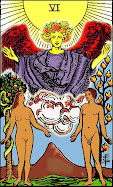I'm a liberal, sex-positive 54-year-old bisexual woman, but I have a fairly conservative core belief: That there should be some baseline standards that TV broadcasters must adhere to during hours that young children may be watching.
It is my belief that when young children are exposed to strong language, violence and gratuitous nudity, they begin to believe that these behaviors are acceptable behavior in the "real" world.
I also believe that when anything goes without restraint or societal reflection it not only cheapens the entire landscape of our culture, but that the underlying message is that each person is undeserving of basic human respect.
I know that many people argue that it is up to parents to censor these images/messages for their children, but it is clear that more and more children are raised without this monitoring. As a result, since broadcasters have continued to push the envelop further and further, it is the responsibility of the federal government to once again regulate them.
Paradoxically, I am also a strong supporter of free speech, but believe that there should be some limits placed during what used to be called the "family hours" of TV entertainment.
As a result, I was heartened this week when the Obama administration asked the Supreme Court to reinstate a policy that allows federal regulators to fine broadcasters for showing nudity and airing curse words during those hours.
The issue has been in relative legal limbo after conflicting court rulings, all stemming from hefty fines leveled against a TV network — way back in 2003!
Now, the administration is seeking the high court's review of appeals court rulings that threw out the Federal Communications Commission's rules against the isolated use of expletives, as well as fines against broadcasters who showed a woman's nude buttocks on an episode of ABC's "NYPD Blue" that aired in 2003.
Last year, the 2nd U.S. Circuit Court of Appeals in New York threw out the FCC policy, saying it was unconstitutionally vague and left broadcasters uncertain of what programming the agency will find offensive. The challenge to the FCC rules arose over celebrities' use of the F-word and S-word on live awards show programs.
In January, the same court said its ruling on the FCC policy compelled it to nullify a penalty of more than $1.2 million against ABC and 45 affiliates over less than seven seconds of airtime from "NYPD Blue" episode.
Acting Solicitor General Neal Katyal, the administration's top Supreme Court lawyer, said the justices should hear the case because the appeals court has stripped the FCC of its ability to adequately police the airwaves.
"The court of appeals' decisions preclude the commission from effectively implementing statutory restrictions on broadcast indecency that the agency has enforced since its creation in 1934," Katyal wrote. Katyal included a DVD of the "NYPD Blue" episode with the filing for the court's convenience.
The "NYPD Blue" episode led to fines only for stations in the Central and Mountain time zones, where the show aired at 9 p.m., a more child-friendly hour than the show's 10 p.m. time slot in the East.
In the "NYPD Blue" episode, actress Charlotte Ross played a police detective who had recently moved in with another detective. In the scene at issue, Ross disrobes as she prepares to shower. After her buttocks and the side of one of her breasts are briefly shown, the camera pans down and reveals her nude buttocks while she faces the shower.
Then the other detective's young son enters the bathroom and sees the naked woman. Embarrassment ensues as the child retreats from the room.
The appeals court said ABC said the scene was intended to portray the awkwardness between a child and his parent's new romantic partner, and the difficulty of adjusting to the situation.
The part of the case involving the awards shows has been to the high court before.
Three years ago, the justices narrowly upheld the policy, but in a ruling that pointedly avoided dealing with First Amendment issues. Instead, the court directed the appeals court to undertake a constitutional review.
For many years, the FCC did not take action against broadcasters for one-time uses of curse words. The policy flowed from a 1978 Supreme Court decision that upheld the FCC's reprimand of a New York radio station for airing a George Carlin monologue containing a 12-minute string of expletives in the middle of the afternoon.
But, following several awards shows with cursing celebrities in 2002 and 2003, the FCC toughened its long-standing policy after it concluded that a one-free-expletive rule did not make sense in the context of keeping the air waves free of indecency when children are likely to be watching television.
The FCC said that some words are deemed to be so offensive that they always evoke sexual or excretory images. The policy essentially excluded news programming and some other broadcasts, including ABC's airing of "Saving Private Ryan" in 2004.
— The Curator
Saturday, April 23, 2011
It's About Time for 'Decency' to Return
Subscribe to:
Post Comments (Atom)




oh yeah! i think so.
ReplyDeletewfs